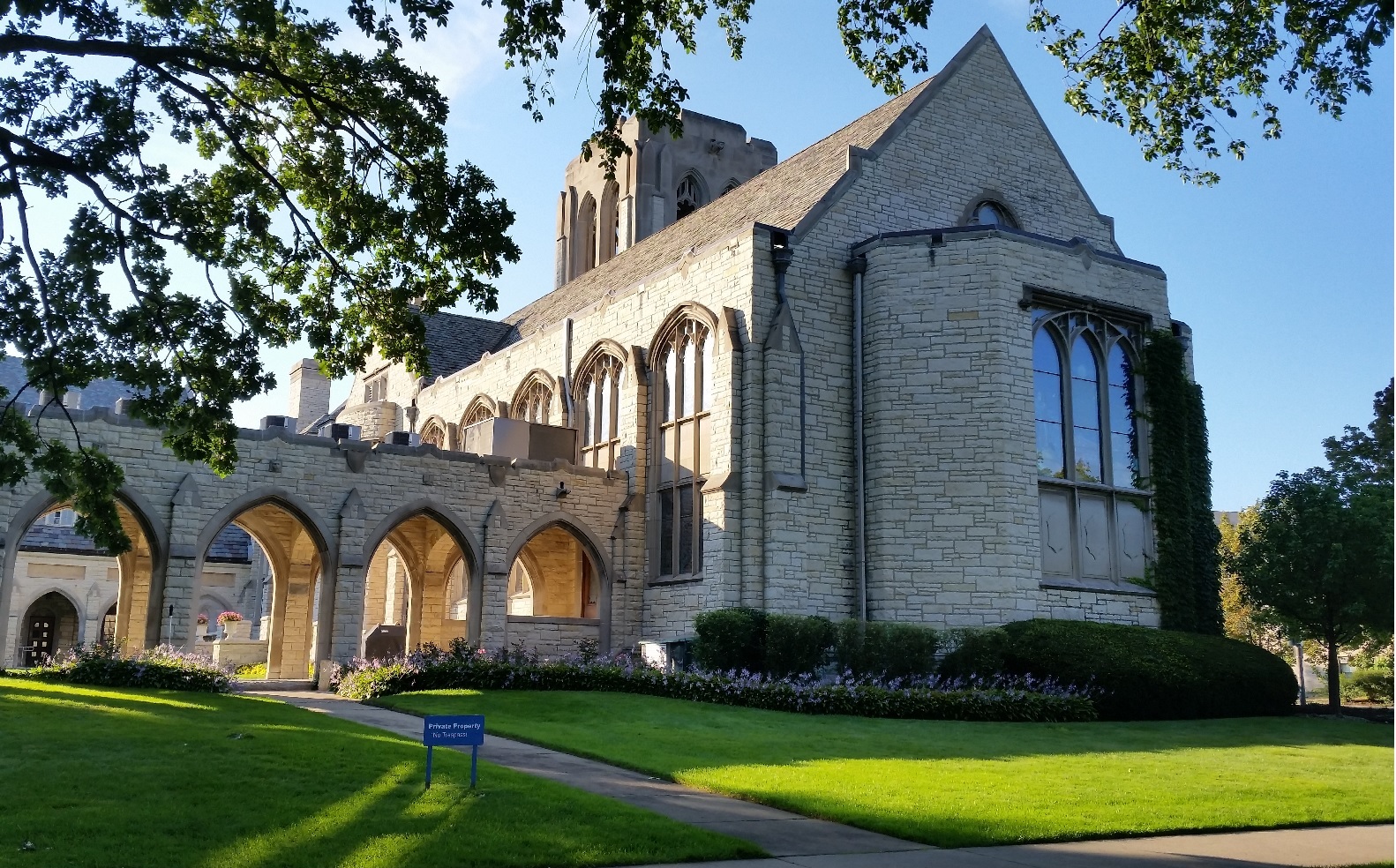There are so many things in life we know intellectually but forget in reality before getting an unhappy reminder. The ever-later sunrises in October, for example, just suck, but we forget.
Since the end of daylight saving time moved from early October to early November in 1986 and 2007, October mornings are just grim, especially when it's overcast and gloomy, like today. The sun rises in Chicago before 7am until October 12th, but even at 6:45 (like today) many people still wake up before dawn.
My second-favorite city in the world has it worse, though. London sees the sun come up around the same time as Chicago in the middle of September, but today the sun came up there well after 7a. The day before the UK goes back to GMT at the end of October, London's sunrise is a depressing 7:43a on the 25th, but it gets worse for them. Boxing Day (December 26th) doesn't see the sun until 8:07a.
Chicago's latest sunrise this year is 7:24a on November 1st. Because Chicago isn't as far north as London, our midwinter sun comes up a few minutes earlier, at 7:19a on January 4th.
So much for quantifying misery. It's all cyclical. October mornings can just be depressing, though.
Friday's fire at the Air Route Traffic Control Center outside Chicago caused massive disruptions in U.S. aviation, but the FAA handled it pretty well:
O'Hare is among the busiest airports in the world, and a main hub for United Airlines, one of the largest carriers. Hundreds of flights were cancelled, and tens of thousands of passengers delayed or stranded as the wave of flight disruptions spread beyond Chicago.
Yet by early this week, the situation was already improving. One of the FAA's most important facilities may have been badly damaged, but the agency quickly redeployed workers to other air traffic control centres. By Sunday, the agency was bragging that its controllers "safely managed about 60% of typical traffic...at O'Hare and over 75% at Midway." Those numbers continued to improve on Monday, and the FAA said it had "set a target" to return the damaged facility to full operations by October 13th.
My flight today (the one I'm on right now) got off the ground on time, with no problems. That's one of two advantages of early flights: the airplane has to be there the night before, which gives the airline plenty of time to notify passengers of cancellations or delays. (The other advantage is surface traffic. I got from my house, to O'Hare, and through security, in 48 minutes, which I think is a record for me.)
Also, I'm on one of American's brand-spanking-new 737-800s, and it's kind of cool. I wish the monitor at my seat showed something other than a hung "waiting for content to load" screen, but the larger bins, LED lighting, and new seats are all kind of cool.
It's a beautiful fall Sunday in Chicago.
Except the Bears lost to the Packers. Oh well.
Yesterday morning, someone set fire to the Air Route Traffic Control Center (ARTCC) in Aurora, Ill., effectively shutting down half the country's aviation:
Brian Howard, 36, remains hospitalized with self-inflicted wounds following the incident that grounded nearly 2,000 flights in Chicago and wreaked havoc on air travel nationwide. He is expected to survive.
The effects of the fire will continue to be felt at both Chicago airports through the weekend as stranded travelers scramble to find seats on other flights. United Airlines, the biggest carrier at O'Hare International Airport, said it may cancel up to one-third of its 480 scheduled O'Hare departures on Saturday.
The fire caused all radio frequencies to go dead and prompted the center to shift to its back-up system until it was shut down completely by the evacuation, employees said. The stoppage brought both O'Hare and Midway airports to a complete standstill. The FAA halted all flights in the Chicago area as well as flights heading to the region.
Such a scenario - called "ATC Zero,'' short for a complete halt to air traffic - hasn't occurred since the terrorist attacks on Sept. 11, 2001, officials said.
The Aurora ARTCC (called "Chicago Center" over the air) monitors all flights within a couple hundred kilometers of Chicago, including all approaches to and departures from O'Hare and Midway. That one employee can do this suggests there might be some avenues to improving security at the ARTCC...
I'll be interested to learn how much this cost the airlines. Thousands of flights cancelled in one day, at a major hub airport for the two largest airlines in the world? Not going to be pretty.
We had spectacular weather across the region Saturday and yesterday. For our hike Saturday we had partly-cloudy skies, low humidity, and 14°C—nearly perfect. Here's Parker at the top of the trail, refusing to look at the camera:

Then, yesterday, I had my final Apollo audition up at Millar Chapel in Evanston. Again, perfect weather:

It's a little cloudy today, but otherwise cool and October-like. As far as I'm concerned, it can stay October-like for the next six months. Walking is good for you.
Also, can I just point out that the 16-megapixel camera that's just an add-on to my phone takes better photos than any even serious Pro-Am cameras from five years ago? Yikes.
No kidding:
“Our study shows that the longer people spend commuting in cars, the worse their psychological well-being,” says Adam Martin from the University of East Anglia. The study, just published in the journal Preventative Medicine, concludes that commuters with “active travel modes” are associated with higher rates of well-being than those who drive or use public transportation. Over an 18-year span, 18,000 British commuters were asked a number of questions to gauge their various levels of “well-being.” The questions ranged from, Have you been feeling unhappy and depressed? to Have you been able to enjoy your day-to-day activities? Responses were then correlated with the type of transportation used to arrive at work. The findings offer additional evidence that active commuters are thought to be happier, more focused workers.
The solution? Walk, even if just for part of the way:
Simply adding ten minutes of walking time to your commute, the study concludes, is associated with a boost in well-being. Importantly, the scientific definition of "well-being" is influenced by work-related traits like problem solving and completing tasks. Therefore, the researchers believe improved well-being also correlates to a more productive worker. The psychological benefits of an active commute appear so significant that driving should be a last resort. Even if you can drive to work in 10 minutes, the study suggests, an hour-long walk may be better for your well-being.
“We conclude that the potential benefits available to car drivers if they switched to active travel, and walking in particular, exceed any potential benefits associated with reducing commuting time,” write the team of researchers.
This is why I get off the bus a few stops early every morning. Oh—and why I live and work in a big city in the first place.
Yesterday I got accepted into the Apollo Chorus in Chicago.
Apollo performs Händel's "Messiah" every year at Chicago's Orchestra Hall. This year we're also doing Schubert's Mass in A-flat, plus a number of South American works in the spring, plus a performance to celebrate the Auditorium Theater's 125th anniversary.
I'll have more as the season goes on.
Oh, and: subscribe!
Chicago—a lot of the country, in fact—is experiencing the coldest early-fall weather in a century:
Never before over the 143-year term of official Chicago records dating back to 1871 had a September 11th failed to produce a high temp which reached 14°C. Never, that is, until Thursday! The day’s 13°C midnight high set a record for the coolest Sept 11 on the books, effortlessly eclipsing the previous record of 15°C. Yesterday’s 13°C was 12°C below normal and 13°C cooler than the day before and, perhaps most significantly, the chilliest early season daytime high temperature which has occurred in the city over the past 97-years!
Oh, and it snowed in South Dakota yesterday. In September.
Meanwhile, the Pacific Coast continues their worst drought in forever...
Meteorological autumn began last Monday, but as usual in early September we slouched through some sticky heat most of the week. Then Friday the weather broke, and this past weekend's weather was spectacular.
Partially because the lake was so cool from last winter, this summer we had only three 32°C days—fewer than in any year in history except 1979.
It gets better (i.e., cooler). The forecast calls for slightly-above-normal but comfortable days today and tomorrow, followed by a cooling trend taking temperatures down nearly 9°C by Friday. Because this is Chicago, where we go from shorts to jackets in less than a week.
Unfortunately, I'm going to spend tomorrow in Phoenix and Wednesday in Louisville, where it will be ghastly warm. Oh well.
I haven't posted a lot this weekend because the weather has been too nice. Yesterday and today Chicago has had temperatures around 23°C, sunny skies, and gentle breezes. It's hard to stay inside, even with the windows open.
And in the evening, our annual cicadas are finally out. Talk about getting a nice buzz on a late-summer evening...
Yesterday Parker got more than two hours of walks; today he'll get at least an hour, though I'm likely to get a lot more as well. (My phone's pedometer says I got 13.3 km yesterday and only 3.9 km so far today.)
Posting might be slow this week because of an odd travel schedule, too. More on that later.